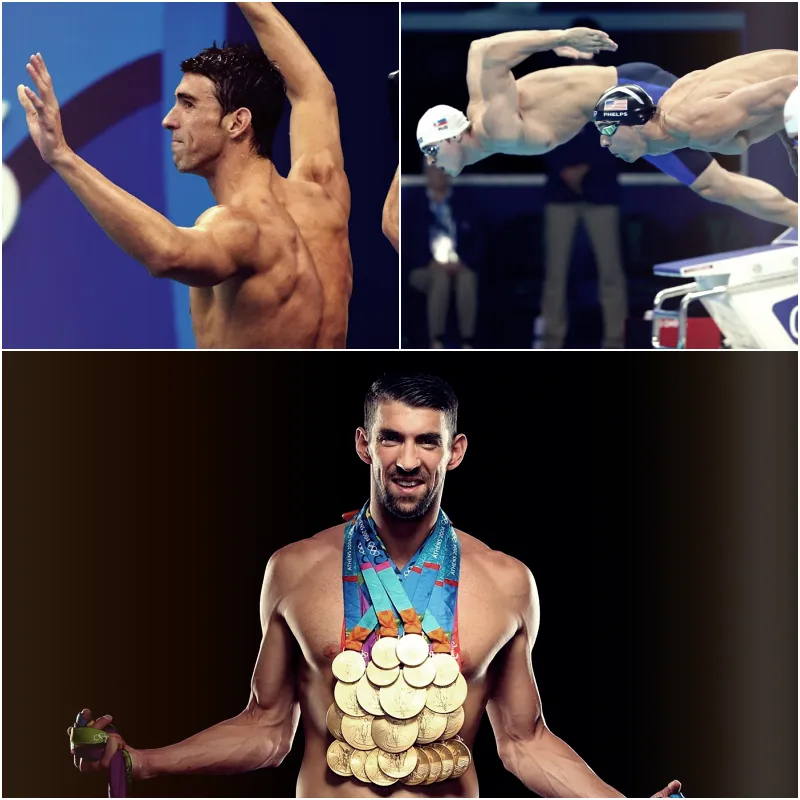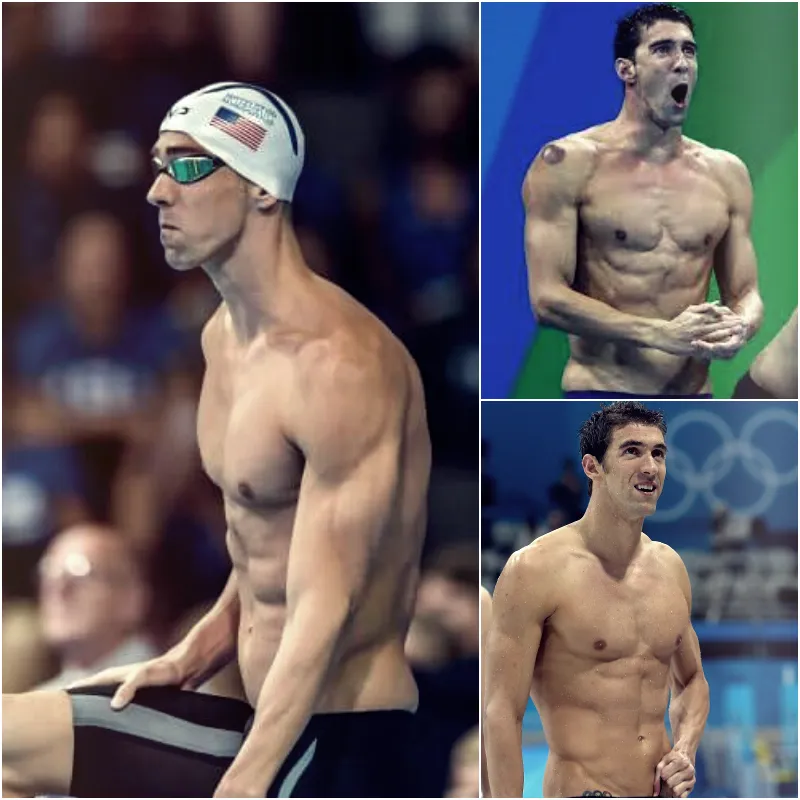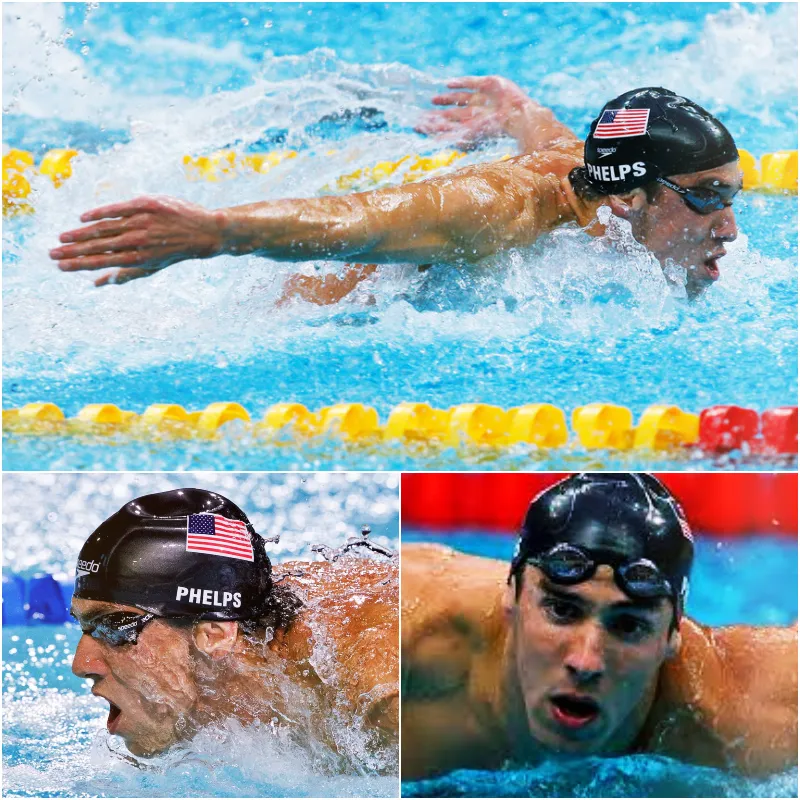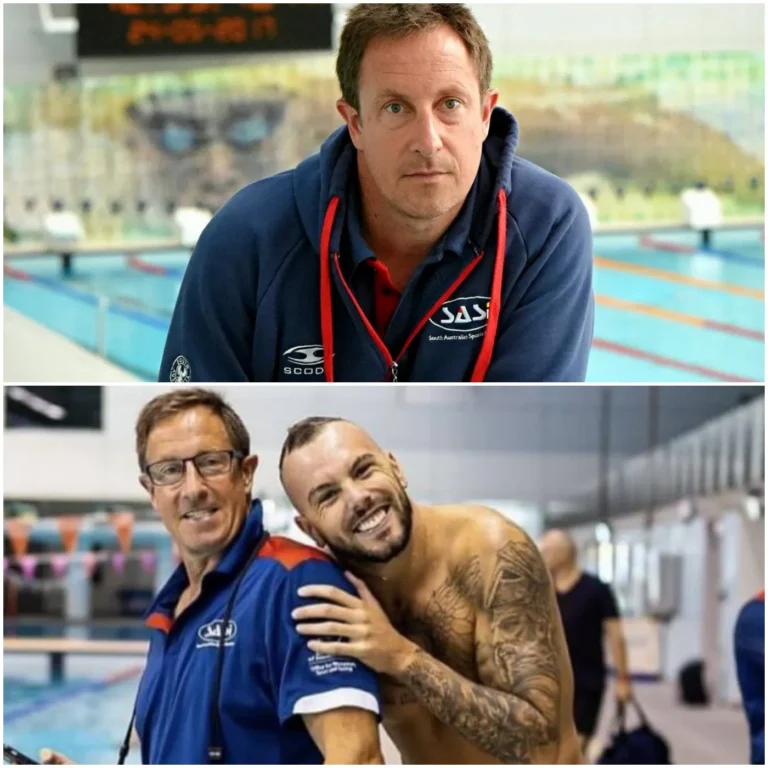
Phelps’ Work Ethic
At the heart of Phelps’ success is an unwavering commitment to training. His former coach, Bob Bowman, reveals in Sally Jenkins’ book, The Right Call, that Phelps never skipped a day of training. This relentless dedication set the stage for his record-breaking performances. Phelps typically swam an astounding 13 kilometers each day, six or seven days a week, totaling around 80,000 meters weekly. This commitment extended even to Sundays and his birthdays, showcasing his extraordinary discipline.

A Rigorous Training Schedule
Phelps split his training into two intense sessions, dedicating 5 to 6 hours daily to the pool. His training regimen was both intense and voluminous, pushing the limits of what many would consider possible. In addition to swimming, Phelps incorporated strength training into his routine. He engaged in functional training with weights at least three times a week, favoring weighted bodyweight exercises that complemented his swimming.
The Importance of Recovery
Recovery was crucial to Phelps’ training routine. He regularly took ice baths, stretched extensively, and received massages to aid muscle recovery. Ensuring adequate sleep was also a pivotal part of his regimen, allowing his body to heal and rebuild after grueling training sessions. This focus on recovery helped him maintain peak performance throughout his career.
Michael Phelps’ Nutritional Regimen
A key component of Phelps’ success was his diet. During his competitive years, he consumed an astonishing 8,000 to 10,000 calories daily, divided into three substantial meals. This calorie intake is significantly higher than the average recommended amounts of 2,000 for women and 2,500 for men. Despite his massive consumption, Phelps maintained a weight of around 85 to 90 kilograms, demonstrating the unique demands of his training and athletic lifestyle.

Michael Phelps’ Medal Achievements
Throughout his illustrious career, Michael Phelps accumulated a staggering 82 medals in major international competitions, including the Olympics, World Championships, and Pan Pacific Championships. His Olympic medal tally includes:
- Athens 2004: Eight medals (six gold, two bronze)
- Beijing 2008: Eight gold medals
- London 2012: Six medals (four gold, two silver)
- Rio 2016: Six medals (five gold, one silver)
Phelps holds the record for the most gold medals in Olympic history, with 23 golds, solidifying his legacy in the sport.

Record-Breaking Performances
Phelps’ remarkable talent is highlighted by his record-breaking achievements. He set a total of 39 world records during his career, including historic performances at the 2008 Beijing Olympics, where he won the 400m medley and 200m butterfly in world record times. Notably, he still holds three world records today: the 400-meter individual medley (4:03.84), the 4×100-meter freestyle relay (3:08.24), and the 4×200-meter freestyle relay (6:58.55).
The Legacy of Michael Phelps
Michael Phelps’ journey from a young swimmer to an Olympic legend is a testament to his hard work, dedication, and relentless pursuit of excellence. His rigorous training regimen, combined with a focus on nutrition and recovery, laid the groundwork for his unparalleled success in the pool. As he continues to inspire future generations, Phelps remains a symbol of what can be achieved with discipline and passion in sports.






